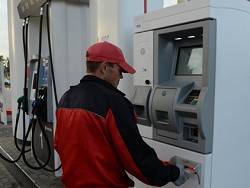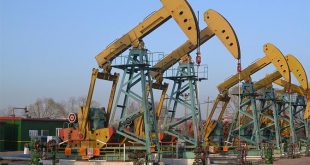
Think this reform is primarily in the interest of the budget. The size of the export duties tied to world prices for hydrocarbons. In terms of their low level of budget revenues is declining at an alarming rate. If the physical volume of Russian oil exports in the first half increased by 6% compared to the same period in 2015 to 127.8 mn tons during this same time, Russia’s revenues from oil exports declined by 30% to 39.3 billion dollars.
Among the important innovations, which expect the domestic economy next year, must include the so-called tax maneuver. Currently, Russian companies extracting natural resources and exporting them abroad, to pay export duty plus tax on mineral extraction (met). The tax maneuver calls for a reduction to 30% in 2017 from the current 42% export duty and the subsequent zeroing in 2018 with the transfer of fiscal burden to the commodity sector on the tax rate which, in one embodiment, next year will grow for oil to RUB 919 per ton from the current 857 rubles.
As for the severance tax, oil, natural gas and coal, the tax base is the quantity of the extracted mineral. And with the amount we order. In August of this year the volume of oil production in Russia exceeded 11 million barrels per day – the highest figure for the last 25 years. This record is only slightly inferior to the absolute maximum of the USSR, which was achieved in 1988 at the level of 11.07 million barrels per day, and based on the data of Azerbaijan and three Central Asian republics.
Tax maneuver may be supplemented by the added tax income (JPM), which is taxed not the volume of production and export of oil, and cash flow of each mining project. The bill on the transition to PDM (while maintaining the met) in the oil industry should enter into force in 2017, and begin to apply in 2018, according to the Protocol of the meeting with Deputy Prime Minister Arkady Dvorkovich. The Finance Ministry estimates the implementation of these innovations and the abolition of export duties on oil could bring the budget of about 600 billion rubles of additional income.
All anything, only the tax maneuver, there is one very unfortunate consequence. The export tax creates a difference between internal and external prices for hydrocarbons. Reduction of fees, especially since its elimination will lead to a leveling of prices.
The problem in 2012 is thoroughly analyzed by the specialists of the Institute for economic policy. Gaidar, who, in principle, advocating for tax reform, had to make a very eloquent recognition: “the Main problem of such reform is that inevitable with the abolition of export duties domestic prices on oil products could have a negative impact on economic growth, have a negative impact on the welfare of consumers, lead to reduced competitiveness of certain sectors and the increase in social tension in society.”
In the relevant departments certainly heard about these risks, because of the reform and its implementation is ongoing lively discussion. Recently Arkady Dvorkovich said that the government continues to discuss volumes, and mechanisms of increasing the tax burden on the oil industry for 2017-2019: “We are discussing three main issues. The first is the completion of the tax maneuver, there is a General willingness to do it, that is the export duty should be reduced to 30% rise in the severance tax. The second part is something that concerns the government’s plans to mobilize a little more revenue from the oil sector, we are discussing how to do it, to what extent, in what proportion to the tax on extraction of minerals and excise taxes.
About excise taxes is worth mentioning separately. In 2017 plans to reduce excise duties on fuel, in particular the excise tax on gasoline will decrease from the current rate of 10.13 thousand rubles to 7.43 thousand rubles per ton. However, recently it became known that the government is discussing the scheme, which involves a more modest increase in met rates by maintaining or even increasing excise taxes. This option is forced by the oil under the pretext of saving the investment programs of mining companies.
Thus, by raising fuel prices, they expect the increase of the tax burden on the industry to partially pass on to consumers.
Polled by RIA Novosti analysts estimate that if the government decides to raise additional funds in the budget only at the expense of growth of excises on fuel, they will grow on the average on 18% and will be further 1,4-1,6 roubles for litre of gasoline of 0.7-0.8 rubles per liter of diesel, which can lead to a proportional increase in prices.
It turns out that the tax maneuver could trigger a double whammy for the private consumer and economic actors: due to the growth of domestic fuel prices and by the growth of excise duties, which again will entail the growth of prices. If the first is an inevitable result of the abolition of export duties, the second is the result of the lobbying efforts of the oil companies. And in this situation the most disturbing, since at various government meetings, the interests of consumers, it seems, no one is.







